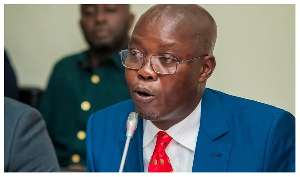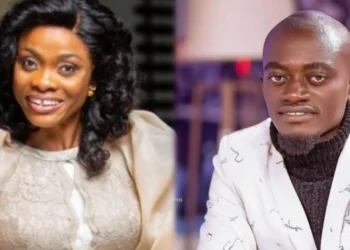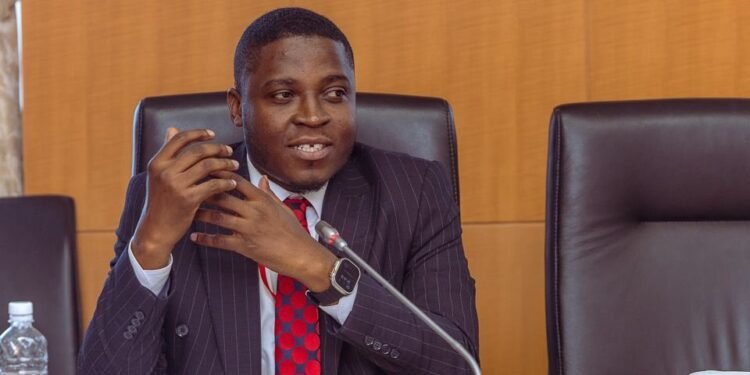In the latest development concerning the vetting of a Supreme Court nominee, Ghana’s Parliamentary Vetting Committee has dismissed a petition challenging the nomination of Justice Kwaku Tawiah Ackaah-Boafo to the Supreme Court.
The Committee, led by Chairman and First Deputy Speaker of Parliament, Hon. Bernard Ahiafor, found the claims brought against the nominee to be legally groundless and factually baseless.
Addressing the media and members of the committee on Friday, June 20, 2025, Hon. Ahiafor reported that a petition had been lodged, alleging that Justice Ackaah-Boafo had insulted and unfairly treated the petitioner in a previous judicial proceeding.
However, upon thorough examination of both the petition and the court judgment at the heart of the complaint, the committee concluded that the accusation was completely unsubstantiated.
“Honourable Members, The petitioner furnished the committee, through the Clerk, additional documents. The committee duly considered the additional documents and realized that it was a petition by the same petitioner alleging corruption against one Charles Addah, Deputy Director of Finance of the Judicial Service, addressed to the Chief Justice on 26 April 2021.
“The Chief Justice investigated the matter and found no wrongdoing against Charles Addah, the Deputy Director of Finance, and accordingly communicated his findings to the petitioner. The petition involving Mr. Addah is unrelated to the current nominee. It would be inappropriate and irrelevant to admit such documents as evidence against Justice Ackaah-Boafo.”
Hon. Bernard Ahiafor
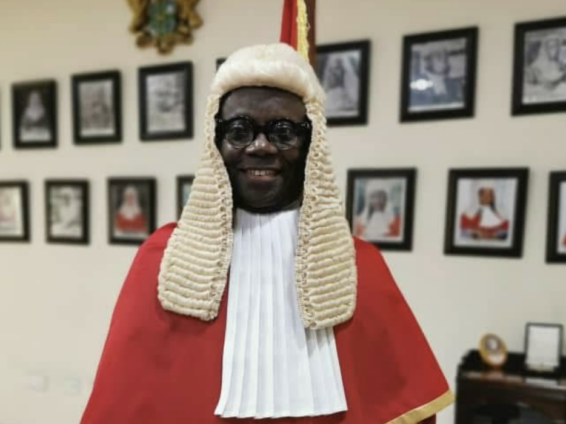
Hon. Ahiafor referred to the specifics of the case, titled Adolf Sevilla, Ghana Limited, represented by Antony Lawu, versus Drivers and Vehicle Licensing Authority.
In this matter, the petitioner had appealed Justice Ackaah-Boafo’s High Court ruling to the Court of Appeal. The appellate court, under suit number H1-10-2023, ruled on the matter on June 22, 2023.
Having reviewed the full context of the proceedings, Hon. Ahiafor made it clear that it was not within the appointment committee’s jurisdiction to revisit or challenge judgments issued by the Court of Appeal.
“We cannot turn the appointment committee into a surrogate Supreme Court or the Judicial Council to review decisions or impose disciplinary measures,” he noted, emphasizing that the judiciary’s internal review mechanisms had already resolved the matter.
Vetting Committee Rejects Misconduct Allegations
Hon. Bernard Ahiafor further cited Article 127(3) of the 1992 Constitution, which protects justices of the Superior Courts from lawsuits or actions arising from the performance of their judicial duties.
According to the Chairman, the complaints lodged against the nominee were based solely on his execution of judicial responsibilities and, therefore, not actionable.
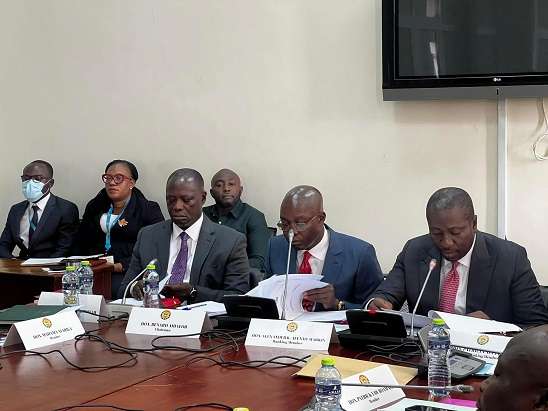
Following this comprehensive review, the committee ruled the petition as frivolous, vexatious, worthless, and without merit, deeming it a blatant abuse of the parliamentary process.
Hon. Ahiafor also commented on media reports that circulated before the vetting session.
Some news outlets had prematurely reported that the petition against the Supreme Court nominee had already been dismissed and that the vetting was scheduled for that day. “We will look into the conduct of those media houses if necessary. Regardless, we are moving ahead with the vetting process.”
Minority Leader Backs Vetting Panel’s Integrity Amid Petition
In a show of bipartisan agreement, Ranking Member of the Vetting Committee and Minority Leader, Hon. Alexander Afenyo-Markin, echoed the Chairman’s stance.
He commended the committee for rising above pettiness and defending the rule of law.
“We need to move away from baseless attacks that reduce our public discourse to mere ridicule. This committee has taken a principled stand to protect our democratic institutions.”
Hon. Alexander Afenyo-Markin
Hon. Afenyo-Markin drew parallels with other recent controversies, such as the ongoing trial of Ghana’s Chief Justice.
In that case, Daniel Ofori had referenced a court judgment involving the Chief Justice as grounds for her removal.
Similar unfounded claims were also made by Yakubu Akogo Ayanga. These matters have since been escalated, resulting in the suspension of the Chief Justice.
“These types of complaints, built on questionable grounds, have wrongly been treated as serious misconduct. We must not allow democracy to be derailed by trivial and politically motivated petitions.”
Hon. Alexander Afenyo-Markin
Turning to criticisms directed at the minority’s conduct during vetting sessions, Hon. Afenyo-Markin addressed public concerns about the intensity of questions posed to nominees.
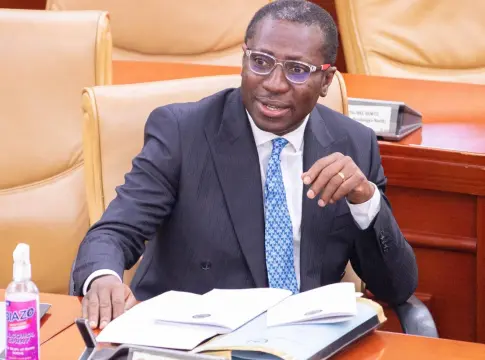
“Our role is not personal; it’s to uphold good governance and the law. For those who worry that nominees will later turn against us in court, let me be clear—I have never feared appearing before any judge. I do my work with integrity and respect.”
Hon. Alexander Afenyo-Markin
He concluded by urging the public to exercise patience and understand the broader mission of the minority in Parliament. “We are not here to attack anyone. We are here to enrich democracy. That is the essence of our work.”
The Vetting Committee’s decision to proceed with Justice Ackaah-Boafo’s nomination, despite public speculation and unsubstantiated claims, underscores the importance of judicial independence and the need for credible checks in the appointment process.
The committee reaffirmed its commitment to protecting the integrity of both the judiciary and parliamentary oversight procedures.
READ ALSO: GOIL Posts 55% Profit Surge, Unveils Bold Agenda for 2025

